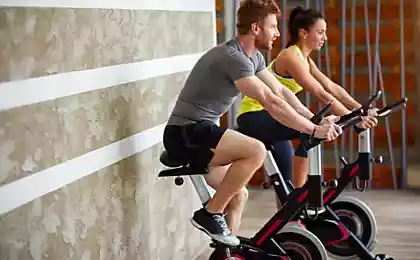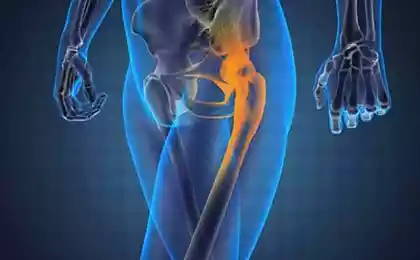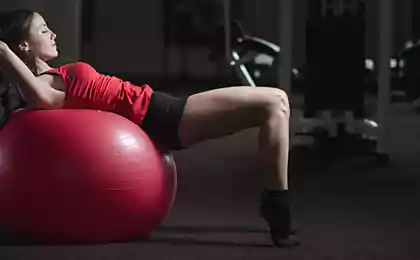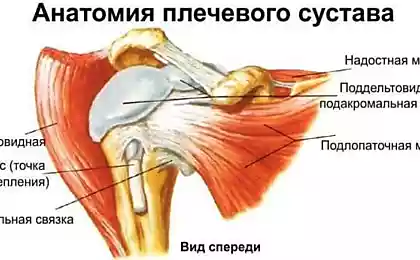177
How to avoid the effects of reduced physical activity
By a decree dated March 23, 2020, Moscow Mayor Sergei Sobyanin ordered citizens over the age of 65 to comply with the self-isolation regime due to their belonging to the high-risk group during the spread of the coronavirus COVID-19.

Unable to leave the house, our grandparents will be forced to sedentary. The question is: how can older people in quarantine avoid the negative effects of reduced physical activity?
A guide to action can be a video project “Grandma in quarantine” from ANO “Physical Rehabilitation” (St. Petersburg), which "Site" It offers attention to our readers.
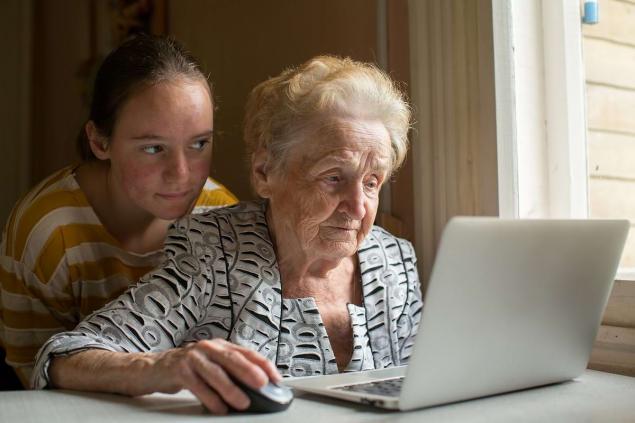
Experienced rehabilitators have developed a set of simple exercises and recommendations for everyone over 50. Show these exercises to your grandmother to reduce the risk of falls and avoid the associated unpleasant consequences.
Exercises for the elderly These exercises help to transfer weight to the legs easier and develop flexibility. To perform them, you will need shoes with a fixed heel, a chair, a stable stool and a small pillow.
And how to cope with the psychological consequences of self-isolation and get the most benefit from forced loneliness, we will tell you.
We draw your attention to the need to stop classes at any discomfort, dizziness, pain and discomfort. You can replace a difficult exercise with a lighter one or completely abandon it and move on to the next one. Work out every day and be healthy!

Unable to leave the house, our grandparents will be forced to sedentary. The question is: how can older people in quarantine avoid the negative effects of reduced physical activity?
A guide to action can be a video project “Grandma in quarantine” from ANO “Physical Rehabilitation” (St. Petersburg), which "Site" It offers attention to our readers.

Experienced rehabilitators have developed a set of simple exercises and recommendations for everyone over 50. Show these exercises to your grandmother to reduce the risk of falls and avoid the associated unpleasant consequences.
Exercises for the elderly These exercises help to transfer weight to the legs easier and develop flexibility. To perform them, you will need shoes with a fixed heel, a chair, a stable stool and a small pillow.
And how to cope with the psychological consequences of self-isolation and get the most benefit from forced loneliness, we will tell you.
- Lift the pillow over your head.
From the position of sitting on a chair, raise your hands with a pillow up, and then slowly lower.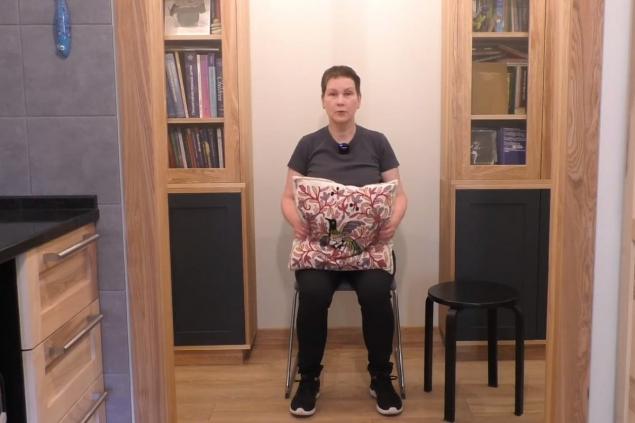
Lifting the pillow, try to completely straighten your arms to feel how the shoulder blades approach the spine.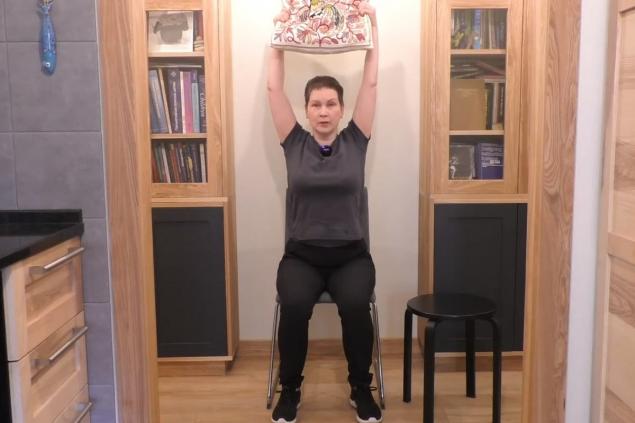
- Performing curls with a cushion
Starting position: sitting on a chair, hold a pillow in front of the chest.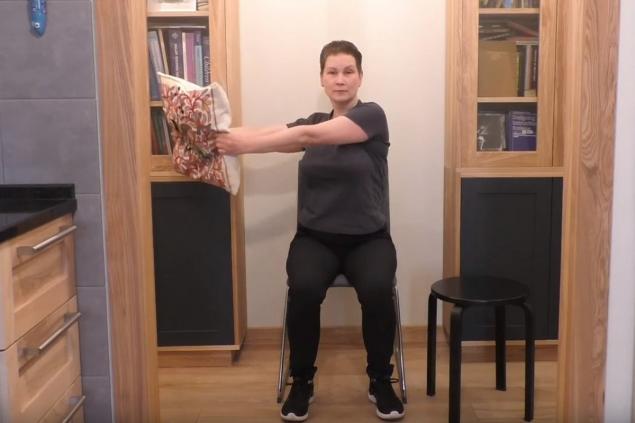
On the count of "one" move the pillow to the right, on the count of "two" return it back.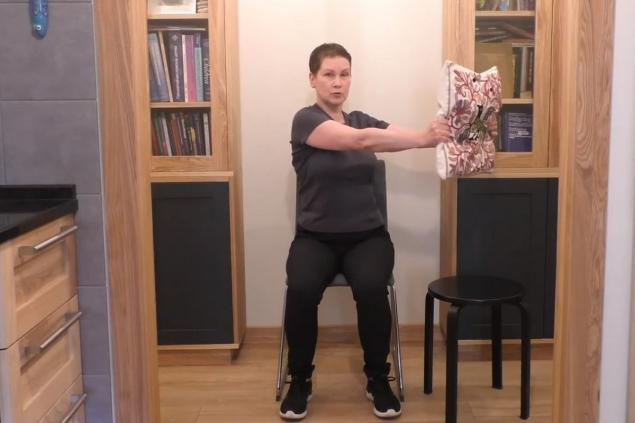
Try to leave the pelvis in place and turn the pillow by twisting the torso. Repeat the exercise the other way. - Put a pillow on a stool in front of us
Put a stool in front of you at a distance of 10-15 cm (the further away, the greater the load).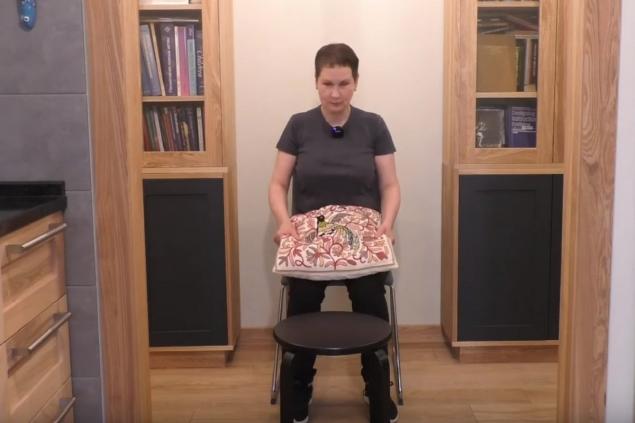
On the count of "one" bend down and put the pillow on the stool, on the count of "two" return to the starting position.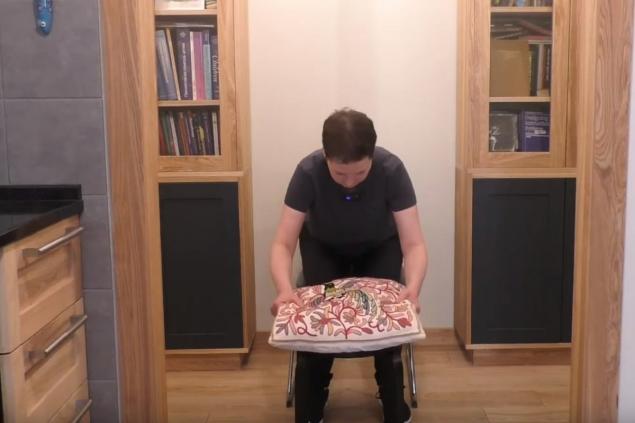
This preventive exercise allows you to smoothly transfer part of the body weight to the feet and reduces risk of falls in the elderly. - Move the pillow to the stool on the left and right
Move the stool just to the right foot. On the count of "one" move the pillow to the right on the stool, on the count of "two" return to the original position.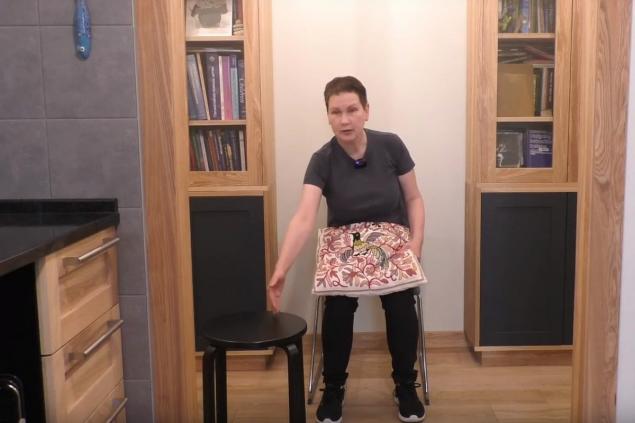
Then move the stool to the left and repeat the exercise in a similar way.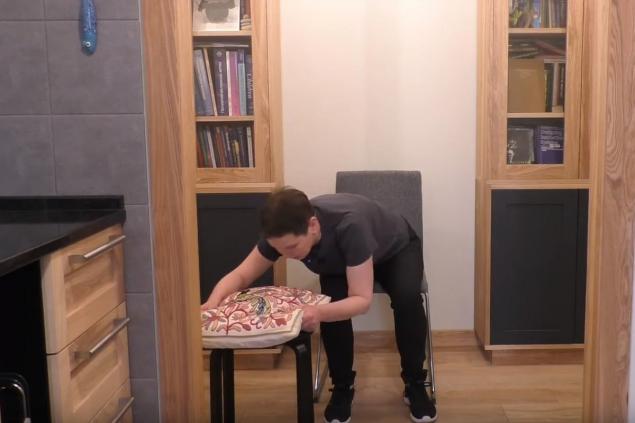
For complication, you can bend a little more or stretch your arms a little more. - Standing up on a stool.
Put the stool in front of you. Put the pillow away.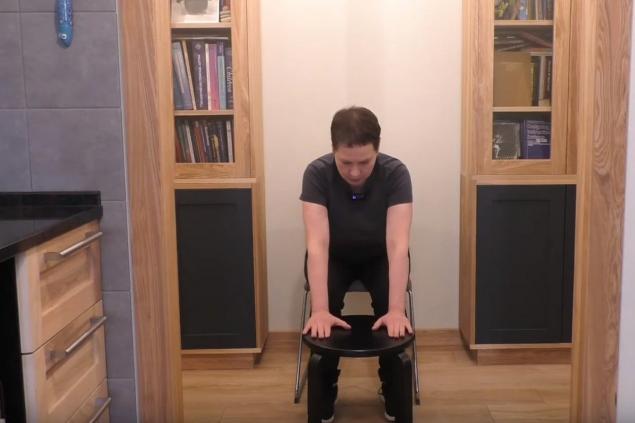
Put your hands on the stool, put your feet a little wider to make it more comfortable.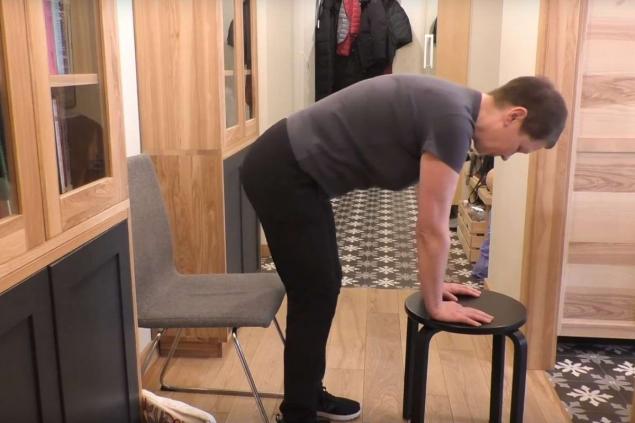
On the account of "one" rise, leaning on a stool, on the account of "two" return to the original position. - Get your feet up to the pillow.
Starting position: sitting on a chair, hold a pillow in front of the chest.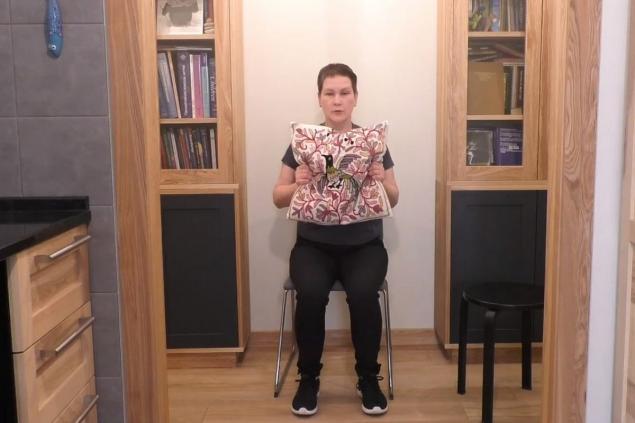
On the count of "one" raise the left knee to the pillow, on the count of "two" return to the original position.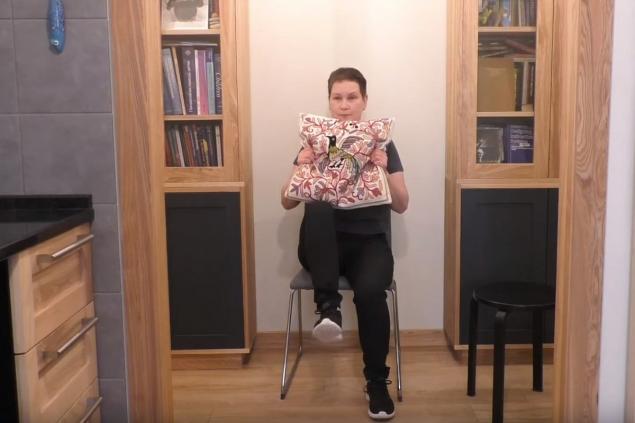
On the count of "three" raise the right knee to the pillow, on the count of "four" return to the original position. - Drop the pillow on the floor and lift it up.
Sitting on a chair, put your legs wide. On one, drop the pillow on the floor.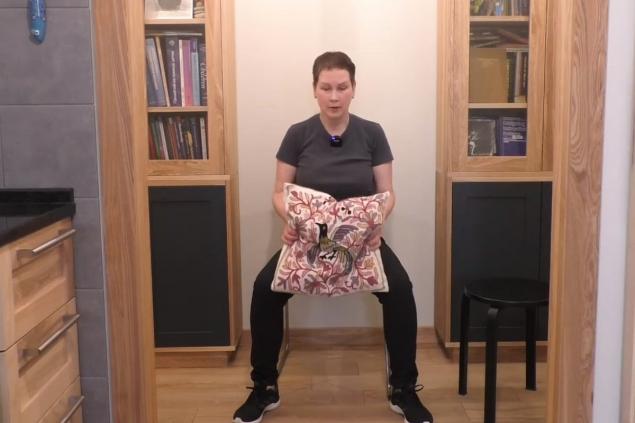
On the count of two, lean on the pillow.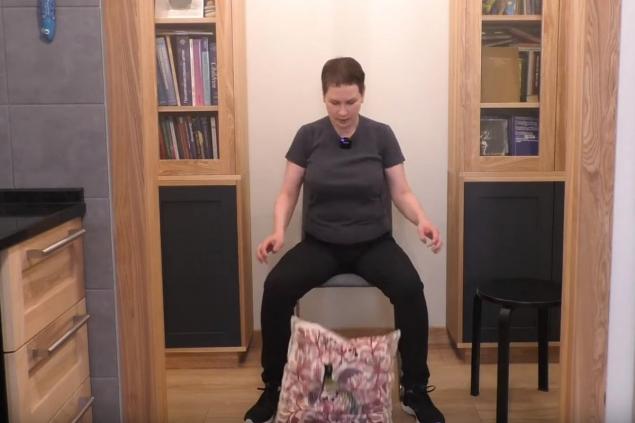
On the count of three, raise the pillow to your chest again.
We draw your attention to the need to stop classes at any discomfort, dizziness, pain and discomfort. You can replace a difficult exercise with a lighter one or completely abandon it and move on to the next one. Work out every day and be healthy!


















